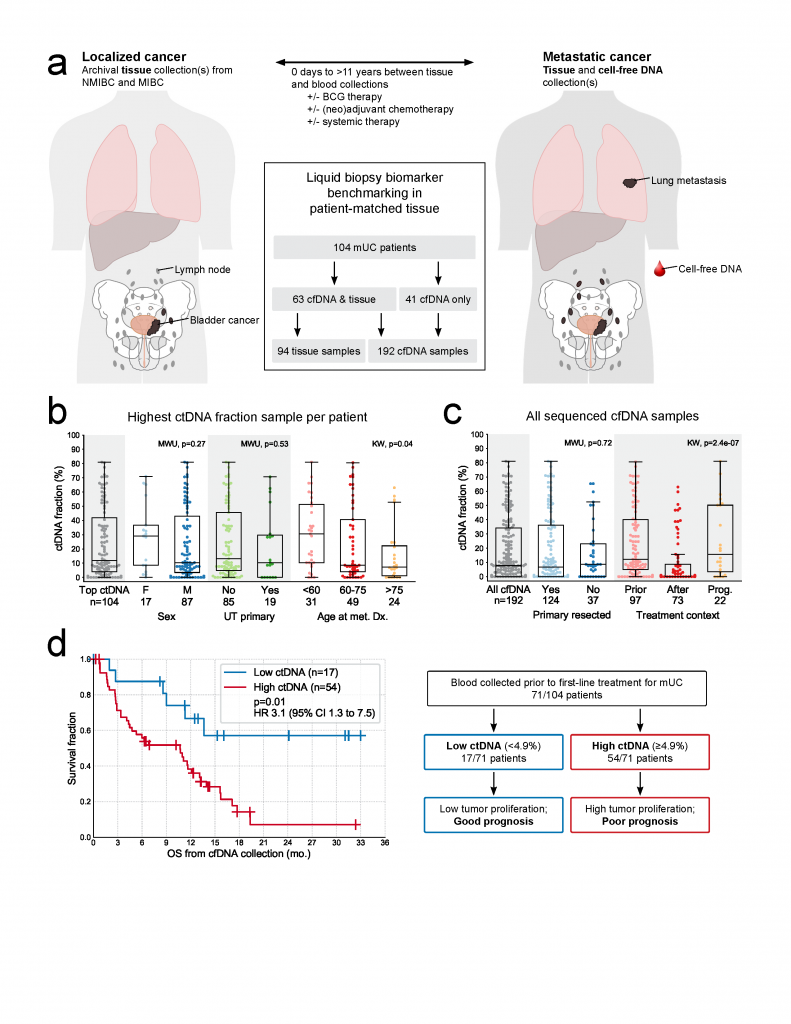Our Research
Located in Vancouver, Canada at the University of British Columbia, the Wyatt lab specializes in lethal metastatic prostate and bladder cancer genomics. We study both liquid (i.e., ctDNA) and tissue biopsies, using novel bioinformatic techniques to discover and validate new biomarkers and to better understand therapy resistance and cancer evolution. We profile correlative samples from prospective clinical trials and operate a provincial blood bank to study real-world patients. Learn more about our research here.
Learn about our precision oncology approach
Toward Informed Selection and Interpretation of Clinical Genomic Tests in Prostate Cancer – JCO Precision Oncology – Vandekerkhove et al.
From Blood to Diagnosis: the Role of ctDNA in Prostate Cancer Treatment – In this discussion between Alicia Morgans and Alexander Wyatt, the two delve into the complexities of using circulating tumour DNA (ctDNA) in the treatment of prostate cancer.
Recent publications
Deep whole-genome ctDNA chronology of treatment-resistant prostate cancer

From Ph.D. students, Cameron Herberts, Matti Annala, and Joonatan Sipola, our latest paper in Nature showcases opportunities for deep whole-genome ctDNA sequencing to dissect metastatic prostate cancer clonal complexity and the emergence of treatment resistance. Read a summary here or the entire manuscript here.

